第101章 CHAPTER XL(2)
Very different from this was the figure I then saw. The hall and the platform were crowded. Where was the principal personage? Presently, quite alone, up the side steps, and unobserved, came a thin but tallish man in black, with a tail coat, and, almost unrecognised, took the vacant front seat.
He might have been, so far as dress went, a clerk in a counting-house, or an undertaker. But the face was no ordinary one. The wide brow, the sharp nose of the Burke type, the compressed lips and strong chin, were suggestive of intellect and of suppressed emotion. There was no applause, for nothing was known to the crowd, even of his opinions, beyond the fact that he was the Liberal candidate for Westminster. He spoke with perfect ease to himself, never faltering for the right word, which seemed to be always at his command. If interrupted by questions, as he constantly was, his answers could not have been amended had he written them. His voice was not strong, and there were frequent calls from the far end to 'speak up, speak up; we can't hear you.' He did not raise his pitch a note. They might as well have tried to bully an automaton. He was doing his best, and he could do no more. Then, when, instead of the usual adulations, instead of declamatory appeals to the passions of a large and a mixed assembly, he gave them to understand, in very plain language, that even socialists are not infallible, - that extreme and violent opinions, begotten of ignorance, do not constitute the highest political wisdom; then there were murmurs of dissent and disapproval. But if the ignorant and the violent could have stoned him, his calm manner would still have said, 'Strike, but hear me.'
Mr. Robert Grosvenor - the present Lord Ebury - then the other Liberal member for Westminster, wrote to ask me to take the chair at Mill's first introduction to the Pimlico electors. Such, however, was my admiration of Mill, I did not feel sure that I might not say too much in his favour; and mindful of the standish incident, I knew, that if I did so, it would embarrass and annoy him.
Under these circumstances I declined the honour.
When Owen was delivering a course of lectures at Norwich, my brother invited him to Holkham. I was there, and we took several long walks together. Nothing seemed to escape his observation. My brother had just completed the recovery of many hundred acres of tidal marsh by embankments. Owen, who was greatly interested, explained what would be the effect upon the sandiest portion of this, in years to come; what the chemical action of the rain would be, how the sand would eventually become soil, how vegetation would cover it, and how manure render it cultivable. The splendid crops now grown there bear testimony to his foresight. He had always something instructive to impart, stopping to contemplate trifles which only a Zadig would have noticed.
'I observe,' said he one day, 'that your prevailing wind here is north-west.'
'How do you know?' I asked.
'Look at the roots of all these trees; the large roots are invariably on the north-west side. This means that the strain comes on this side. The roots which have to bear it loosen the soil, and the loosened soil favours the extension and the growth of the roots. Nature is beautifully scientific.'
Some years after this, I published a book called 'Creeds of the Day.' My purpose was to show, in a popular form, the bearings of science and speculative thought upon the religious creeds of the time. I sent Owen a copy of the work. He wrote me one of the most interesting letters I ever received. He had bought the book, and had read it. But the important content of the letter was the confession of his own faith. I have purposely excluded all correspondence from these Memoirs, but had it not been that a forgotten collector of autographs had captured it, I should have been tempted to make an exception in its favour. The tone was agnostic; but timidly agnostic. He had never freed himself from the shackles of early prepossessions. He had not the necessary daring to clear up his doubts. Sometimes I fancy that it was this difference in the two men that lay at the bottom of the unfortunate antagonism between Owen and Huxley. There is in Owen's writing, where he is not purely scientific, a touch of the apologist. He cannot quite make up his mind to follow evolution to its logical conclusions. Where he is forced to do so, it is to him like signing the death warrant of his dearest friend. It must not be forgotten that Owen was born more than twenty years before Huxley; and great as was the offence of free-thinking in Huxley's youth, it was nothing short of anathema in Owen's. When I met him at Holkham, the 'Origin of Species' had not been published; and Napier and I did all we could to get Owen to express some opinion on Lamarck's theory, for he and I used to talk confidentially on this fearful heresy even then. But Owen was ever on his guard. He evaded our questions and changed the subject.
Whenever I pass near the South Kensington Museum I step aside to look at the noble statues of the two illustrious men. A mere glance at them, and we appreciate at once their respective characters. In the one we see passive wisdom, in the other militant force.